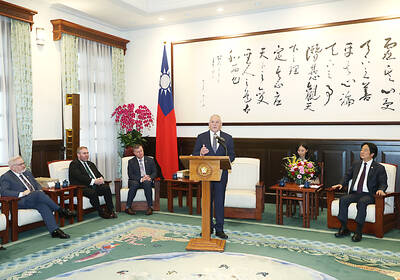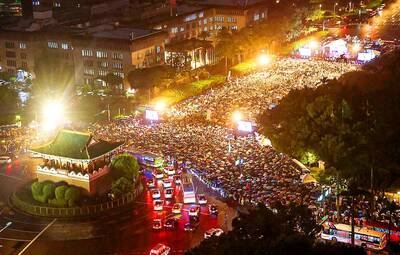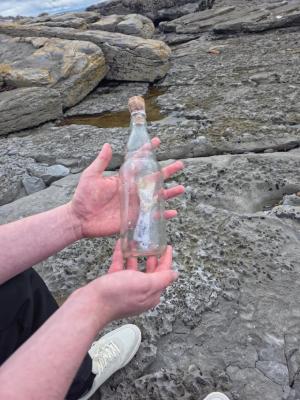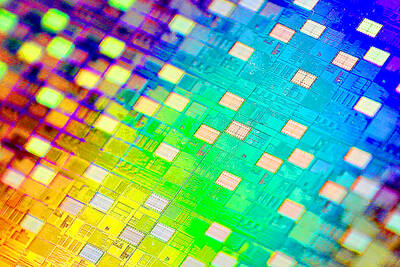This year’s Earth Day passed on Tuesday with close to 100 different “green” events held around the nation to honor Mother Nature.
But as Environmental Protection Administration (EPA) Minister Winston Dang (陳重信) stressed, the Earth Day activities were only one-day events hosted to stimulate public interest and broaden knowledge of eco-friendly behavior so that people could begin to practice them in everyday life.
And conservation of water and electricity may become an essential part of life in the future, with waves of academics and experts urging the new government to increase water, energy and gas prices.
In line with the trend, president-elect Ma Ying-jeou (馬英九) said at an environmental press conference on Monday that to promote carbon reduction, he would implement energy taxes and greenhouse gas emission reduction laws. He also said he would devise a water usage quota per capita and charge premiums for extra usage.
“If we set a person’s daily water usage at 245 liters, people would think about water conservation when flushing the toilet or using their washing machines,” Ma was quoted as saying.
Jerry Chiou (邱繼哲), founder of the Green Comfortable Healthy Association and nicknamed the “electricity-saving guru,” said that electricity conservation is all about simple mathematics. The first step to saving electricity, besides switching off idle appliances, is to replace all bulbs with the energy-saving variety.
“Your electricity bill is the sum of the wattage of your electric appliances, multiplied by the number of hours they are in use, times the unit price for electricity [currently NT$2.4 per unit],” he said. “Since you cannot change the unit price for electricity, you should work on reducing the wattage of your home appliances and the number of hours you use them.”
Every unit of electricity is equivalent to 1,000 watts used for 60 minutes, he said, explaining that powering a 50 watt light bulb for 20 hours would cost one unit.
The reason that LED bulbs are more energy efficient is because most of the electricity — more than 90 percent — used in incandescent bulbs is emitted not in light, but in heat, Chiou said.
“That means in addition to using more electricity, in summer your air conditioner has to generate extra output to offset the heat emitted by your bulbs,” he said.
“If you consider that fact, and replace a traditional 100 watt incandescent light bulb with a 21 watt LED bulb that produces the same brightness, you save 19 units of electricity and NT$45.6 per month if you use the bulb for eight hours a day,” he said.
The simple calculation reveals that LED bulbs are a worthwhile investment, Chiou said, even with a typical domestic LED bulb costing about NT$70 more than a traditional one. Following the calculation above, LED bulb users could expect electricity savings after the second month of usage.
Domestic water users can similarly slash more than half of their water bills with a few simple tricks and nifty gadgets, said Sheng Yuan-li (盛元禮), secretary-general of the Taiwan Water-Saving Facilities Development and Promotion Foundation.
“With every unit of water conserved, you emit one fewer unit of wastewater into the water treatment system,” Sheng said.
Saying that water conservation should done without inconveniencing users, Sheng stands behind the notion that water saving should not be carried to extremes, “since that would upset people and turn them in the opposite direction.”
“In some department stores, for example, the volume of water is reduced to mere drops,” he said.
“Not only does this annoy people, it prolongs hand-washing time, and therefore in the end does not really save water,” he said.
Using a water-saving kit the Taipei City Government commissioned him to develop as an example, Sheng said that by fitting domestic faucets with his patented plastic O-ring, water output could be cut up to 60 percent, “but users wouldn’t even notice a difference in their water consumption habits.”
“I have designed O-rings in three different sizes to accommodate the water pressure in different homes, so users can choose the size that works best for them,” he said.
Another simple way to save water is to fit toilet bowls with two-stage flushers, he said.
“A person goes to the bathroom five times a day on average, however three to four of those trips are for urination only — and flushing a tank full of water is wasteful,” he said.
Domestic users who wish to convert their toilets can get the flushers from DIY stores, he said, adding that consumers should be careful to check for a Water Conservation Mark on the products, issued by the Ministry of Economic Affairs’ Water Resource Agency.
In addition, Sheng advised the public to investigate actual water output needs in their toilets and lower the water level in their tanks whenever possible.
“By lowering the water level by 1cm, a liter of water is saved per use,” he said.
And besides these tricks, there are other countless ways to save water, Sheng said.
“Homemakers are usually good with water conservation strategies — for example, water used to rinse raw rice makes excellent dish detergent.”
By using less water, if you live in a high-rise building, that means the water pump used to pump water to upper floors would be used less, meaning that you save electricity along the way, he said.
“Every bit counts. With every unit of water you save, you reduce carbon emissions by 0.194kg, and that can add up very quickly,” he said.

‘NON-RED’: Taiwan and Ireland should work together to foster a values-driven, democratic economic system, leveraging their complementary industries, Lai said President William Lai (賴清德) yesterday expressed hopes for closer ties between Taiwan and Ireland, and that both countries could collaborate to create a values-driven, democracy-centered economic system. He made the remarks while meeting with an Irish cross-party parliamentary delegation visiting Taiwan. The delegation, led by John McGuinness, deputy speaker of the Irish house of representatives, known as the Dail, includes Irish lawmakers Malcolm Byrne, Barry Ward, Ken O’Flynn and Teresa Costello. McGuinness, who chairs the Ireland-Taiwan Parliamentary Friendship Association, is a friend of Taiwan, and under his leadership, the association’s influence has grown over the past few years, Lai said. Ireland is

FINAL COUNTDOWN: About 50,000 attended a pro-recall rally yesterday, while the KMT and the TPP plan to rally against the recall votes today Democracy activists, together with arts and education representatives, yesterday organized a motorcade, while thousands gathered on Ketagalan Boulevard in Taipei in the evening in support of tomorrow’s recall votes. Recall votes for 24 Chinese Nationalist Party (KMT) lawmakers and suspended Hsinchu City mayor Ann Kao (高虹安) are to be held tomorrow, while recall votes for seven other KMT lawmakers are scheduled for Aug. 23. The afternoon motorcade was led by the Spring Breeze Culture and Arts Foundation, the Tyzen Hsiao Foundation and the Friends of Lee Teng-hui Association, and was joined by delegates from the Taiwan Statebuilding Party and the Taiwan Solidarity

An SOS message in a bottle has been found in Ireland that is believed to have come from the Taiwanese captain of fishing vessel Yong Yu Sing No. 18 (永裕興18號), who has been missing without a trace for over four years, along with nine Indonesian crew members. The vessel, registered to Suao (蘇澳), went missing near Hawaii on Dec. 30, 2020. The ship has since been recovered, but the 10 crew members have never been found. The captain, surnamed Lee (李), is believed to have signed the note with his name. A post appeared on Reddit on Tuesday after a man

Instead of threatening tariffs on Taiwan-made chips, the US should try to reinforce cooperation with Taiwan on semiconductor development to take on challenges from the People’s Republic of China (PRC), a Taiwanese think tank said. The administration of US President Donald Trump has threatened to impose across-the-board import duties of 32 percent on Taiwan-made goods and levy a separate tariff on semiconductors, which Taiwan is hoping to avoid. The Research Institute for Democracy, Society, and Emerging Technology (DSET), a National Science and Technology Council think tank, said that US efforts should focus on containing China’s semiconductor rise rather than impairing Taiwan. “Without